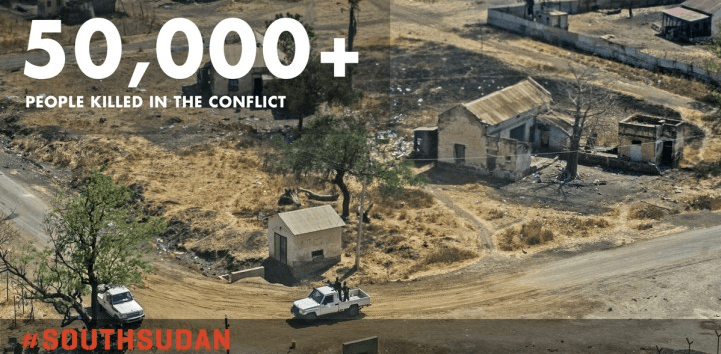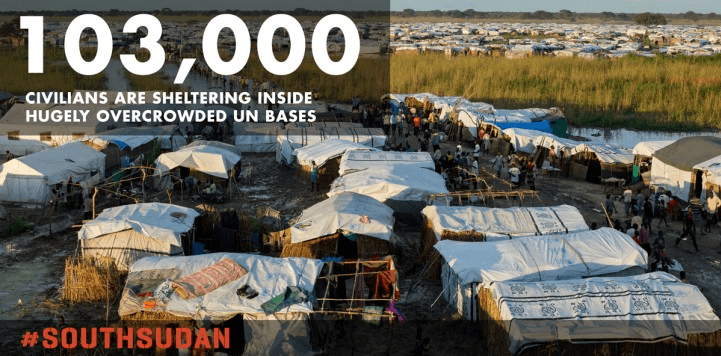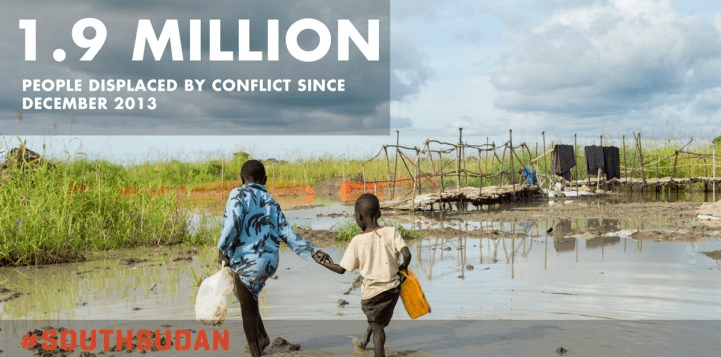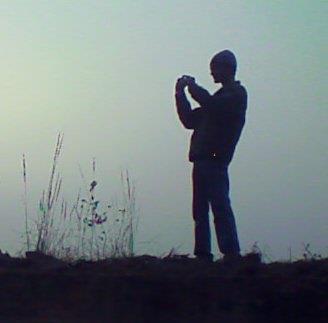Back in 2011, South Sudan broke away from Sudan and declared itself as an independent state. Western media verticals, as well as many pro-secession pundits claimed that statehood will usher in a new era of prosperity and growth for South Sudan, and eventually, even Sudan will have to acknowledge the superiority of the South Sudanese state.
Apparently, those dreams are yet to come true, and with things going the way they currently are, prospects do not seem promising for South Sudan.
In fact, I have written about South Sudan multiple times: back in 2013 itself, I termed South Sudan to be a failed state — I am yet to be proven wrong. In 2014, troubled by the loss of life and property in South Sudan, I questioned the logic of secession, and even thought of ways to fix the blunder named South Sudan.
However, all said and done, South Sudan continues to prove itself as a failed state.
South Sudan: From Bad To Worse
Never-Ending Violence
South Sudanese government and the rebels continue to blame each other for the ongoing destruction. Thousands of people have so far been massacred, and infrastructure is in ruins. Hospitals, churches, and especially masjids — everything is falling prey to the civil war in South Sudan.

Photo: UN and Isaac Billy
According to United Nations, over 50,000 people have so far been killed in the conflict. Furthermore, over 1.9 million people have been displaced (since December 2013), and nearly 103,000 civilians have sought refuge in UN bases all around the country.
Sure, peace talks are also on the way. Yet, with each failed agreement, the condition worsens and both the parties, be it the government or the rebels, indulge in a new bout of fighting. Humanitarian issues seem to be of secondary importance in South Sudan.

Photo: UN and JC McIlwaine
International Response
United Nations peacekeepers are already active in the country, whereas the African Union too has launched a Commission of Inquiry to investigate the atrocities committed against civilians in South Sudan.
International aid did manage to combat the imminent famine in 2014, but due to continued fighting, displaced populace and a possibly dry season, food security still remains a challenge in South Sudan.
As such, diplomatic meetings, negotiations and arms embargo — everything is being used, but the crisis in South Sudan is already out of hand.

Photo: UN and JC McIlwaine
The Final Comment
Amidst such hostilities, humanitarian crisis and never-ending warfare, it has become obvious that South Sudan is, by all means, a country that should not exist in the first place.
When South Sudan seceded from Sudan, most of its supporters claimed that Sudan will prove to be the weaker one, and South Sudan, riding on the shoulders of Western imperialism, will develop at an impressive rate. However, none of these claims have materialized.
Today, Sudan, in spite of having issues of its own, is managing to run a tight ship. Agreed, there are many things that Sudan needs to improve, but it is still somehow holding on, and despite poverty, the Sudanese civilians are not consuming bullets and bombs for dinner on a daily basis.
South Sudan, on the other hand, can at best be called a mistake. It is one country that should never have been created — the southern part of Sudan was just incapable of governing itself back in 2011, and even today, the condition has not changed at all.
Foreign intervention, fake propaganda, and militant secessionism of a handful of South Sudanese rebels together led to the balkanization of Africa’s largest country. But the new state of South Sudan has repeatedly failed to get its act together, and having emerged as one of the biggest errors in the history of nation-building, there is nowhere left for South Sudan to go. The only viable and sane option will be to acknowledge the fallacy of secession and re-join Sudan — but neither the international community nor the South Sudanese leaders or rebels are strong-willed enough to swallow that.
As a result, the devastation in South Sudan continues at a rapid pace, with the average civilians paying the ultimate price, simply because they are residing in a country that does not deserve to be called a country.
All Images: FPIF | United to End Genocide
